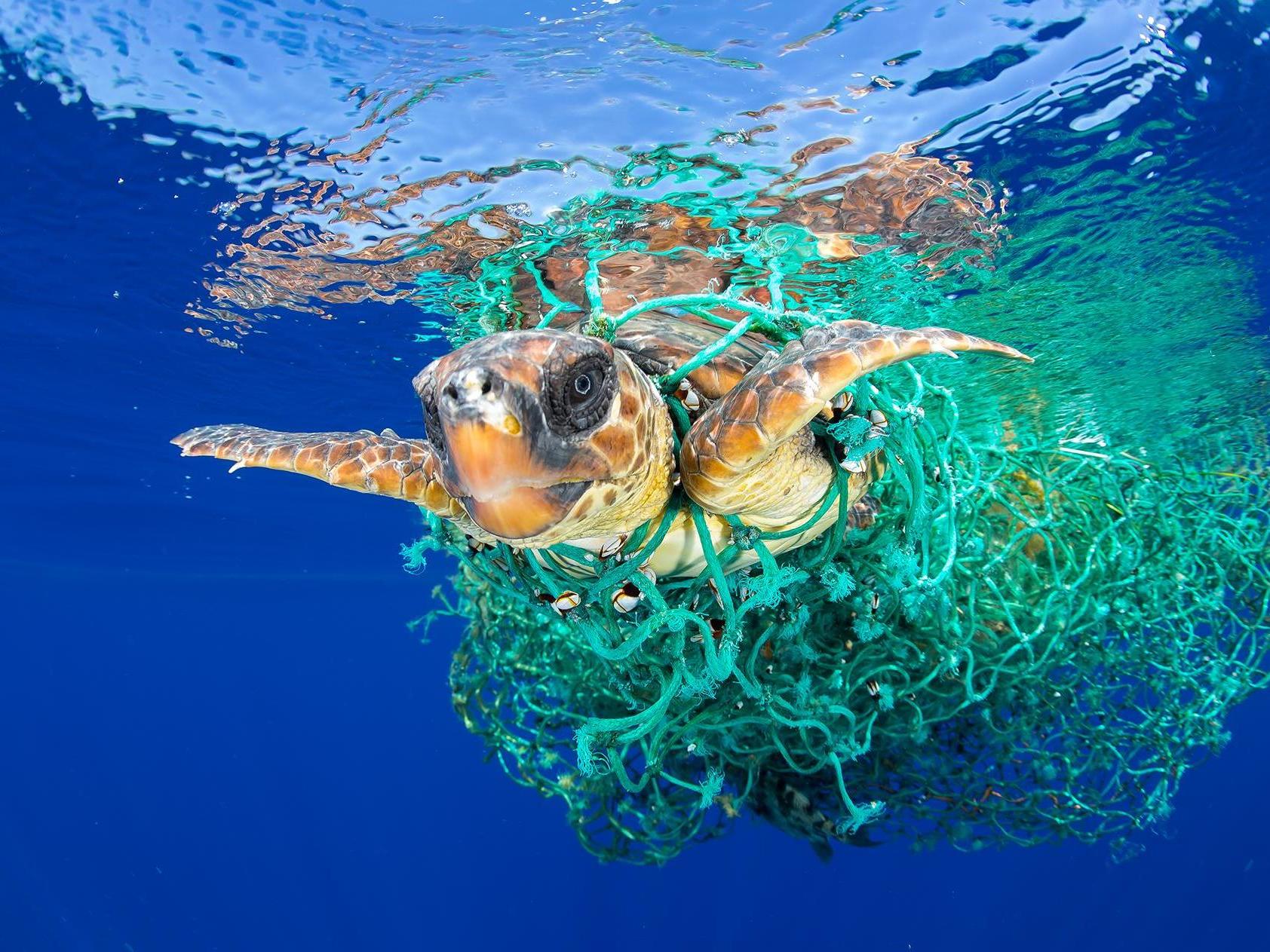The Independent's journalism is supported by our readers. When you purchase through links on our site, we may earn commission.
The anti-plastic straw campaign is helpful – but if we want to save marine life, we need to stop eating fish
Is the straw ban fuelled by compassion towards sea animals, or rather a desire to safeguard a food source?

When footage of a turtle with a plastic straw lodged its nostril went viral in 2015, people around the world were happy to start ditching plastic straws. It’s inspiring to see so many people choosing to make small changes, with the environment in mind.
The anti-straw movement has shown the power of the individual in influencing the market; consumers are saying no to plastic straws, and companies are beginning to listen. Worldwide, more bans are taking off. Starbucks has pledged to ban plastic straws by 2020, while McDonald’s is to replace them with paper straws in all its UK branches. New York City is also considering banning plastic straws in eateries.
This anti-plastic movement is important. The world consumes plastic in alarming quantities – 320 million tons are produced every year. Unfortunately, the plastics we throw away end up in landfill and the natural environment – plastics don’t fully degrade, they just erode into smaller pieces, known as microplastics. These microplastics contain toxins which can kill or maim sea creatures when ingested, while uneroded plastic debris can destroy marine habitats and cause animals grave bodily harm.
“Straws are something anyone can give up easily without having it affect their lifestyle,” said Diana Lofflin, the founder of California-based strawfree.org. But can we really save marine life without radically changing our lifestyles?
While the anti-straw movement should be lauded for its role in raising public awareness about plastic pollution in our oceans, some commentators have criticised it as ableist, given the independence straws allow some disabled people.
Another growing concern is that the movement might encourage complacency. There’s more to plastic waste than straws. Estimates from five years of beach cleaning on US coastlines suggest that there are up to 8.3 billion straws on global coastlines. A crazy figure, but it equates to about 0.03 per cent of all plastic in the ocean. This begs the question – where is all the rest of the plastic coming from?
One of the greatest overall threats to marine wildlife and sources of marine plastic, according to Australian scientists Chris Willcox and Denise Hardesty, is fishing gear – this includes nets, fishing lines and buoys. According to a more recent survey, at least 46 per cent of the rubbish found in the Great Pacific Garbage Patch, a major ocean plastic accumulation zone between California and Hawaii, comes from discarded fishing nets.

“Entrapment in nets intended for other species, and in gear left behind by fishing boats is the prime threat to marine turtles,” said diver and underwater photographer Francis Pérez. His photograph of a loggerhead sea turtle entangled in abandoned fishing gear off the coast of Tenerife won first prize in the nature singles category at World Press Photo 2017. It’s a beautiful, albeit distressing picture to look upon.
“I hope that it raises public awareness about plastic pollution, and about what we are doing to our oceans. Everybody empathises with sea turtles – had it been another marine creature, perhaps a shark, it probably wouldn’t have got so much attention. My friend and I first checked to see whether the turtle was okay – it wasn’t injured, so after taking the photo and a short video, we cut it loose.”
Overfishing causes harm beyond the discarded nets and buoys which make up a sizeable proportion of marine plastics, and it’s apparently inevitable given our insatiable desire for fish suppers.
Today, around 90 per cent of the world’s fish stocks are exploited. More locally, about 41 per cent of assessed fish stocks are subject to overfishing in the northeast Atlantic. It’s estimated that we kill between 1 to 2.8 trillion fish each year, more than all the humans that have ever existed.
Yet taking too much does not just reduce or endanger target fish stocks – it also means that we are reducing the food supply for other marine life. The unsustainable overfishing of bluefin tuna in the Strait of Gibraltar, for example, has threatened orcas that migrate to the region to feed by dramatically reducing their main food source.
Unsustainable practices like trawling also haul out more sea creatures than they intend to – and then throw them back into the sea dead or dying. Bycatch mortalities include dolphins, marine turtles, juvenile fish, sharks and seabirds. WWF estimates that about 40 per cent of fish caught worldwide are caught unintentionally.
In July this year, a viral tweet from a university student questioned why people stop using straws to save fish, but won’t stop eating them to save them. It was funny, but also a valid question. Is the straw ban fuelled by compassion towards marine life, or rather a desire to safeguard a food source?
Marine Conservation Society UK recommends that those who do eat fish make an informed choice and look for the most sustainable options, such as those that are green-rated on its Good Fish Guide.
It seems to me that taking fish off our plates is the best way to save marine life. Banning straws is just the beginning.
Join our commenting forum
Join thought-provoking conversations, follow other Independent readers and see their replies
Comments
Bookmark popover
Removed from bookmarks